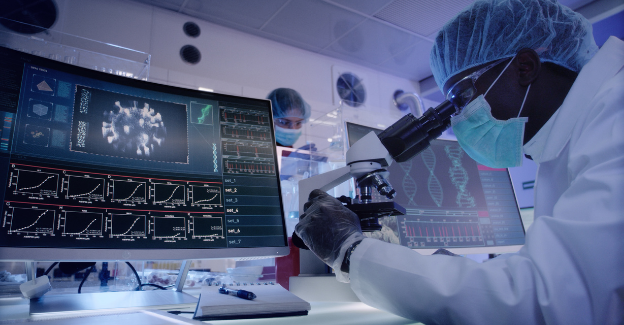As the world invests billions to produce a Covid-19 vaccine, it is innovative hybrid technology that will ultimately ensure its effectiveness in this fight against the virus
Recent headlines are dominated by the news that the University of Oxford research team is seeing promising results from early trials of its Covid-19 vaccine candidate. Now we must turn our attention to the vital technology that ensures that doses of any viable vaccine reach locations in a state without the need for retesting.
Vaccines present a real logistical challenge, primarily because of their high sensitivity to excessive vibration and changes in temperature, two common occurrences during transit. As we get closer to having a viable vaccine, having a solution for its safe and efficient transportation will be vital in ensuring that the millions and eventually billions of treatments distributed worldwide reach their destinations in usable condition.
This is especially important when considering that storage and transportation infrastructure in emerging economies - where the impact of the virus is typically being felt most keenly - is often much less well developed than it is in the West.
The Transportation of Vaccines
The difficulty of ensuring faultless transportation has led to the pharma industry historically accepting an average spoilage rate of between four and 12 percent for each shipment. This costs not only pharmaceutical companies financially - to the tune of $34.1 billion in 2019, according to an IATA report - but also means huge numbers of treatments are delivered in a potentially non-viable state.
Should a temperature excursion occur, for instance, vials need to be retested at the location. Retesting has both a financial and time cost - up to $50,000 per pallet and up to three weeks to verify viability, which runs into the millions for a five-percent temperature excursion rate. This is the absolute best-case scenario in which all retested vials are viable. In reality, it could be worse.
Solving the Vaccine Transportation Problem
The hybrid solution to this problem has two elements. First, it must provide real-time insights into the condition of the payload (the monitoring), and second, it must provide suitable protection to prevent excursions in the first place (the passive solution). After many years of development, these two elements have been brought together in smart containers, which now present an effective way to transport vaccines and other biologics around the world to combat Covid-19.
This combination of software and hardware is essential to the effective transportation of biologics. Using IoT devices to log data about ambient and internal temperatures, location, time and vibration levels eliminates the need for retesting at the delivery location. It can also provide real-time alerts if a shipment is at risk, and an intervention by local teams on the ground is required. This enables lost or misdirected shipments to be found and redirected.
The data derived from IoT-enabled containers can also be used to model journeys and conduct risk assessments for different routes before a shipment goes ahead. This improvement allows logistics companies to mitigate potential risks and reduce the financial and time costs associated with spoiled cargo.
Utilizing Hybrid Solutions
Hybrid technology is currently used to transport treatments to patients and laboratories around the world. Additional features such as automatic recharging and long independent run times help to maintain optimal cargo conditions at times - such as in the current pandemic, when short-notice lockdowns and flight cancelations are real possibilities. Meanwhile, double-door systems keep cargo dry and safe from humidity - vital when delivering to countries with high ambient temperatures.
Finally, a hybrid container also saves vast volumes of CO2. Sustainability is still a relevant factor, even during a time of a global pandemic. In India, during lockdown, the first annual decline of CO2 emissions in four decades was recorded thanks in part to the containers. Hybrid containers could be part of accelerating a change in the industry, with these solutions reducing CO2 emissions per shipment by almost half.
The hybrid solution enables pharma companies to deliver their products door to door to the most challenging destinations worldwide. The design and technology have led to an audited spoilage performance of less than one-tenth of a percent rather than the previously-accepted four to 12 percent, and IATA is moving closer to providing new standards for this type of container.
As we begin to move towards a Covid-19 vaccine, innovative hybrid technology will have to take over the fight and distribute the vaccine across the world. Ensuring that as many of the treatments as possible reach locations of all types in a viable state will be vital in saving lives. The use of innovative technology, like the hybrid solution, will be vital in winning this fight.









